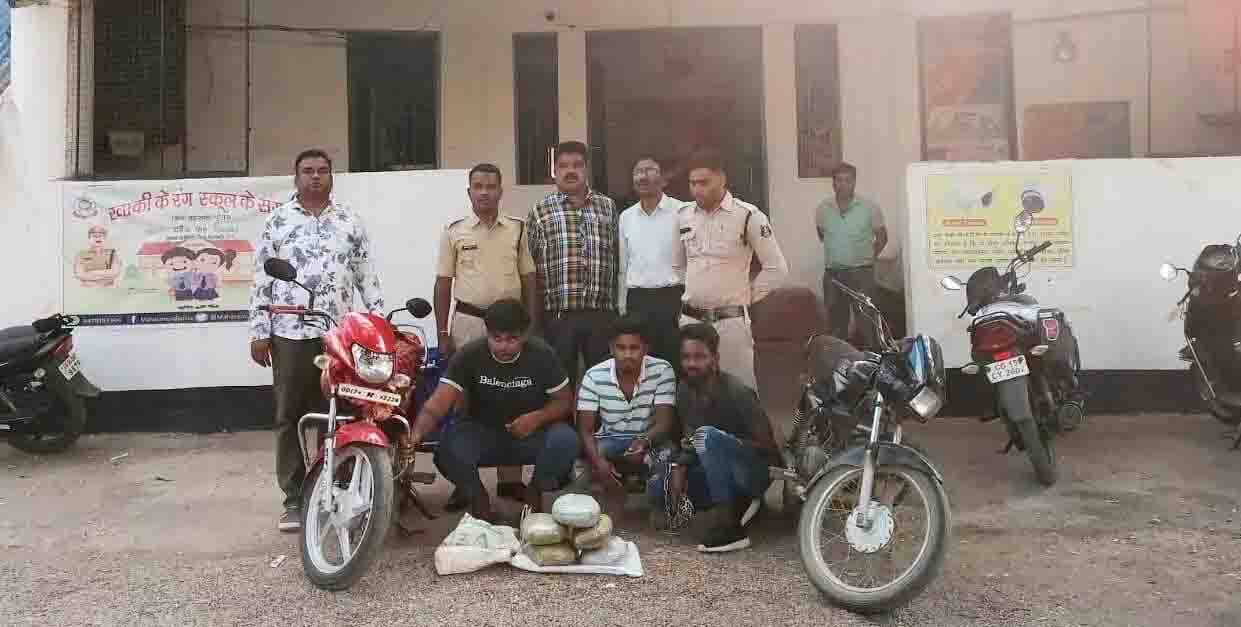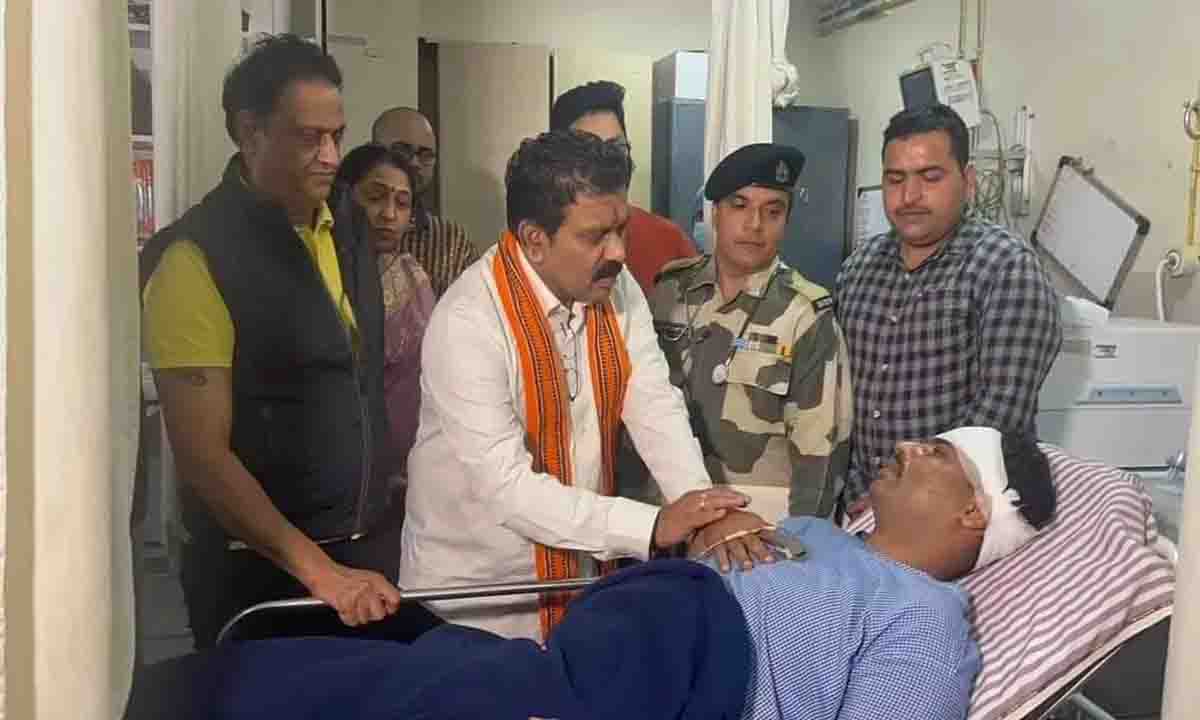Centre’s ‘tradition’ on Bengal NREGA

Wages amounting to Rs 2,762 crore remain unpaid to millions of Bengal workers for projects completed over a year ago under the MGNREGA because the Centre has stopped sending funds to the state under the national job scheme, the Supreme Court was told on Tuesday.
“Since 26th December 2021 the Centre has not released any monies to the West Bengal government citing widespread leakages in MGNREGA in the state,” an affidavit, filed by the NGO Swaraj Abhiyan through advocate Prashant Bhushan, says.
“Effectively, over Rs 7,500 crore MGNREGA funds has been withheld by the Centre, comprising wages amounting to INR 2,762 crores (from financial year 2021-2022).”
With the Centre stopping funds, no work under the scheme has been done in Bengal since the end of the fiscal year 2021-22.
“While the Centre defends freezing West Bengal’s funds citing implementation irregularities, it has not registered a single FIR or imposed a single penalty on a single government functionary in the state,” says the affidavit.
The affidavit has been submitted in the name of the NGO’s Calcutta-based secretary, Avik Saha.
“Similarly, it has been threatening states with cutting off MGNREGA funds for not conducting social audits (thereby reducing corruption) even as funds for social audits have been frozen.”
The NGO has accused the central government of violating Bengal workers’ right to timely payment of wages, guaranteed under Section 3 r/w Schedule II, Paragraph 29, of the Mahatma Gandhi National Rural Employment Guarantee Act, 2005.
Under the Act, the Centre has to ensure wage payment within 15 days of the date on which the work has been completed, failing which compensation must be paid for the entire duration of the delay.
The affidavit recalls that on May 3, 2016, the Supreme Court had held in Swaraj Abhiyan vs Union of India that delayed payment of workers’ legitimate dues is a constitutional breach by a central or state government.
On May 8, 2018, the apex court further held that wage delays are unacceptable and that it is “the responsibility of the central government and state governments to ensure wages are paid within the statutory time period, failing which the worker is entitled to compensation as prescribed”, the affidavit adds.
The NGO has emphasised that many MGNREGA workers outside Bengal too are facing wage delay or denial.
It says two unjustified technical interventions have been introduced under the pretext of reducing leakage and improving efficiency in the wage payment process — but have achieved the opposite.
The government has made it mandatory for the workers’ pictures to be uploaded on the NMMS app from the worksite — time-stamped and geo-tagged — twice a day. Otherwise, the worker’s attendance for the day is not registered, and he or she cannot be paid wages for the day.
With connectivity and network poor in rural areas, this rule — introduced on January 1 this year — has played havoc with wage payments.
The affidavit flags several issues with the new system, such as:
■ There are no guidelines for enforcing accountability for wages lost because of technical issues involving the NMMS.
■ Workers are unable to inspect the muster rolls or verify that their attendance has been recorded correctly.
■ There’s no authentication mechanism in the back end to verify the pictures uploaded. An analysis by the Scroll.in news website of images uploaded on the NMMS app in six districts in Haryana, Bihar, Maharashtra, Madhya Pradesh and Rajasthan revealed blurry images that made it practically impossible to verify workers’ attendance.
Thus, the NMMS does nothing to increase transparency or reduce corruption in the system, the NGO has argued.
It says the Aadhaar-based Payments System (ABPS), which uses Aadhaar as a financial address and sends money to a recipient’s “last Aadhaar-linked account”, too has caused problems for the workers since being made mandatory from February 1.
The ABPS can be cumbersome as it requires meeting stringent KYC/e-KYC norms and the resolution of possible inconsistencies between the Aadhaar database, National Payments Corporation of India and the bank account, the affidavit says.
The rural development ministry’s own data shows that more than half of MGNREGA workers are still ineligible for the ABPS, it adds.
Wage rate
Section 6 of the 2005 Act empowers the Centre to specify the wage rate, till which time a state’s minimum wage rate for agricultural labourers is to be deemed the wage rate under the job scheme for that state.
However, since 2010, the Indian government has delinked MGNREGA wages from the statutory minimum wages, the affidavit says.
A report by the parliamentary standing committee for rural development and panchayati raj had recommended that the MGNREGA wage rate be indexed to the Consumer Price Index-Rural (CPI-R).
However, the wage rate continues to be indexed to the Consumer Price Index-Agricultural Labourers (CPI-AL), which focuses on food requirements instead of on healthcare and children’s education, the NGO says.
It alleges that the wage rates set by the Centre violate the minimum agricultural wage rates of several states.
Quoting a survey, it says that as of August 2022, while the estimated average minimum agricultural wage rate in the states was Rs 312, the average MGNREGA wage rate for the entire country was about Rs 218.
Budget cut
The scheme, which entitles every rural household to paid, unskilled work for up to 100 days a financial year, was designed as a demand-driven scheme — allowing beneficiaries to get work on demand.
“Unfortunately, consistent and deliberate under-allocation of funds to the programme has reduced it to a supply-driven scheme. This discourages workers from participating in the programme,” the affidavit says.
It flags a sharp drop in the budget allocation for the scheme since 2021-22. It says the budget allocation for 2023-24, after deducting the pending liabilities of Rs 13,000 crore from the previous financial year, will be Rs 60,000 crore.
This will at best provide only 16.64 days of work per household to the 10.2 crore active households (those that worked for at least one day in the last three years), the affidavit says.
The current financial allocation stands at 0.198 per cent of the GDP, the lowest ever in the programme’s history, it adds.
The affidavit has been submitted in an old case that the NGO had filed over issues relating to MGNREGA payments and the Food Security Act.





